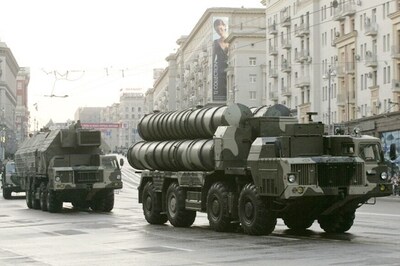
views
Mumbai: Sheer negligence on part of various security agencies might have resulted in the avoidable tragedy in which 15 commandos of the elite Quick Response Team (QRT) were killed in a Maoist blast in Gadchiroli on May 1, according to a top security expert.
Former Additional Deputy Commissioner of the State Intelligence Department (SID) Shirish Inamdar said from all available indicators, the QRT squad may have unwittingly walked into a ‘trap’ laid by the Maoists.
There were at least a dozen intelligence alerts indicating the possibility of precisely such attacks in the Maoist-infested district, but complacency may have overtaken caution, particularly since elections had passed off virtually peacefully.
“Ominous signs had come in the hours preceding the strike. Just a day before (April 30), the Chhattisgarh Police had nabbed six dreaded Maoists from Aranpur in Dantewada. In the early hours of May 1, the Maoists hit back by torching around 36 heavy vehicles in Kurkheda, resulting in higher movement of security forces. Barely hours later they triggered the road blast claiming 15 of our commandos,” Inamdar, a retired Intelligence Officer, points out.
In such circumstances, he suspects the Maoists had practically “anticipated the retaliatory moves” by the Maharashtra security forces, which reacted as per their assumptions, leading to tragedy.
Soon after the Kurkheda incident, the deputy superintendent of police had ordered the QRT to rush there and probably since official armoured vehicles were not immediately available, they took a private van, says Inamdar.
Maharashtra minister of state for home Deepak Kesarkar and director-general of police Subodh Jaiswal referred to this aspect — which Inamdar dubs akin to making the security forces sitting pigeons easily targeted by the rebels.
“The question is for how long was that private vehicle working for the QRT, was the driver knowledgeable or trained for such sensitive assignment like transporting troops in a danger zone, did the information about the security itinerary leak out to the Maoists and how,” asked Inamdar.
Suspecting that standard operating procedures may have been “thrown to the winds”, Inamdar said it was not clear whether the Road Clearance Party (RCP) and Road Opening Party (ROP) did their job of sanitising the expected route taken by the QRT van.
“The fresh road digging activity is clearly visible in videos/telecasts, apparently two vehicles had passed that route before the security van was blasted. The maoists got sufficient time to plant the explosives by digging the road, covering it and retreating to their dens, there are too many unanswered questions,” Inamdar said.
On how the rebels in Maharashtra and other Maoist-troubled states manage to get unlimited funds or uninterrupted supplies of arms and explosives, the former top cop revealed that their methods were similar to terror groups worldwide.
“Nearly two-thirds of the arms and ammunition are stolen. In the May 1 case, there were no guns seen lying in the vicinity of the blast, so we can easily draw this conclusion," he adds.
As for funds, they cultivate opium in isolated areas which is sold for their various needs or simply swapped for more arms with the narcotics mafia. "While the sophisticated arms go to the top-level guerillas, the other lower cadres use mostly country-made arms or even bow-arrows and occasionally even slings," says Inamdar, who has served in some of the affected regions.
He says the three-pronged policy of the former UPA government when P Chidambaram was the Union home minister, has proved to be "extremely successful" in containing the Red menace across the country.
These pertained to 'No Negotiations' with the Maoists, Low Intensity Conflict to clear their areas of influence and All Inclusive Development in all the affected regions around the country.
“The proof of success is that since the past nearly two decades, the government and security forces have restricted them to their areas of influence without giving them space to spill over to other territories, development activities along with employment has noticeably increased in the affected areas,” Inamdar explains.
(With inputs from IANS)


















Comments
0 comment